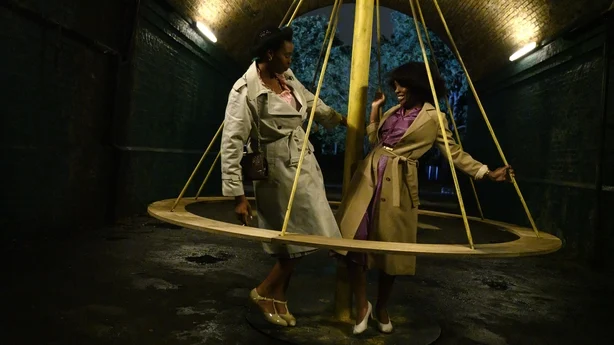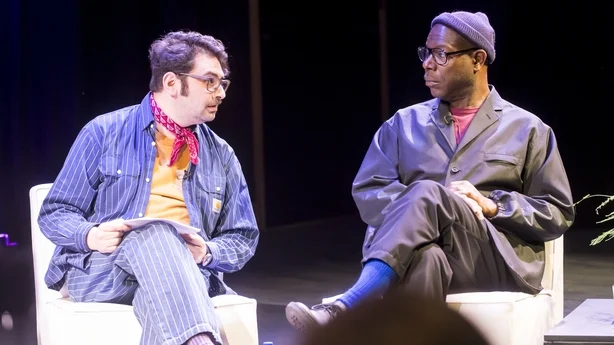Dec 24, 2024
Nov 01,2024
Earlier this year, celebrated filmmaker and artist Sir Steve McQueen joined Dr Nicolas Pillai at University College Dublin for an illuminating public conversation at UCD's Trapdoor Theatre, attended by students from the Creative Futures Academy (CFA) - watch it above.
Below, Nicolas Pillai revisits his audience with a master of modern cinema.
Steve McQueen saved me.
I had become heartsick in England, embalmed by nine months of lockdown, horrified by government policy. And then the BBC did something wonderful: it screened Small Axe, a series of five films for television written and directed by McQueen. This was state of the nation programming in the grand tradition of BBC classics like Our Friends in the North. If one needed a reminder of the value of public service broadcasting, here it was. A rethinking of British history and society by one of our leading artists, a reappraisal so passionate, precise in its convictions, and joyful in its observation of human connection. "These are the untold tales that make up our nation," McQueen would tell historian David Olusoga. After nine miserable months, I was reminded that new narratives were possible.

Soon afterwards, I started a new life in Ireland.
Three years later, I was working at UCD on the Creative Futures Academy (CFA) project. In February 2024, we were planning to launch the Trapdoor Theatre, a new multi-purpose Black Box teaching space and venue on the Belfield campus. A conversation with our CFA industry partner Gráinne Humphreys of Dublin International Film Festival raised the possibility that McQueen would visit us for an event with students. His film Hunger had been on the Leaving Cert for several years and so his work was already in the creative DNA of our students.
I wrote a letter to Steve: "Your work exemplifies the values of experimentation, social responsibility and ambition that CFA seeks to instil in its students."

It was important to me that this be an event led by students. I selected a range of undergraduates and postgrads from our CFA partnership of IADT, NCAD and UCD. These students all came at McQueen's work from different angles – as screenwriters, visual artists, improvisers, film directors and students of the cultural and creative industries. They prepared for the event with diligence and enthusiasm. It’s not every day you get to interview a Turner Prize and Academy Award winner.
Tickets for our event sold out in less than 24 hours. When the day came around, I nervously greeted McQueen in a UCD loading bay as the wind whipped round us. At first, he was subdued, having flown in that morning and been driven straight out to the campus. But once he took to the stage, he was transformed. You’ll see it on the video. Utterly receptive to our students’ questions, funny and opinionated with the audience, and he ribbed me mercilessly. Watching back, what seems most important about the event was that it was unrehearsed. You can see McQueen thinking through every question carefully in real time, sometimes going back on himself, riffing and inventing on the spot as his thoughts turn into words.
Watch the trailer for Steve McQueen's new movie Blitz
During my research for the event, I’d listened to McQueen’s appearance on Desert Island Discs. One of his choices had been Miles Davis’ Blue in Green. As it happened, I was working on a book about Davis at the time. I decided to end the event by gifting McQueen my beloved LP copy of Miles Live at the Plugged Nickel. It seemed appropriate. He’d given us an hour of improvisation, as polished and precious as a Davis solo. As the event ended, he brandished the LP aloft triumphantly. I miss owning that record but it was a small price to pay. After all, once upon a time, Steve McQueen had saved me.
About The Author: Dr Nicolas Pillai is UCD’s academic lead for the Creative Futures Academy project. Rethinking Miles Davis (co-edited with Roger Fagge and Tim Wall) will be published by Oxford University Press in 2025.